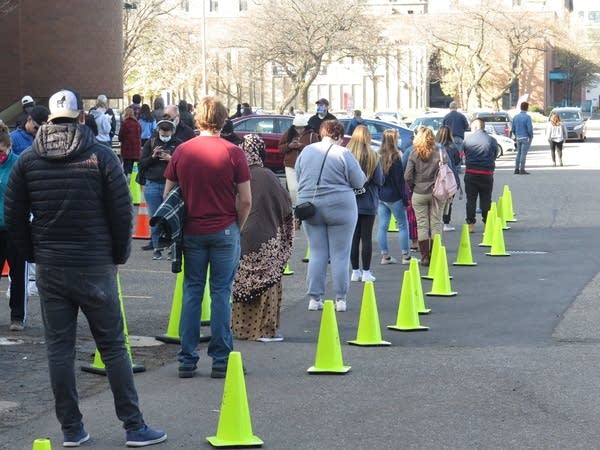After election, parties brace for court challenges

Voters queue up to cast ballots at a Ramsey County early voting center in St. Paul on Monday. Staff at the site estimated the wait time on Monday afternoon at up to two hours.
Matt Sepic | MPR News
Go Deeper.
Create an account or log in to save stories.
Like this?
Thanks for liking this story! We have added it to a list of your favorite stories.


